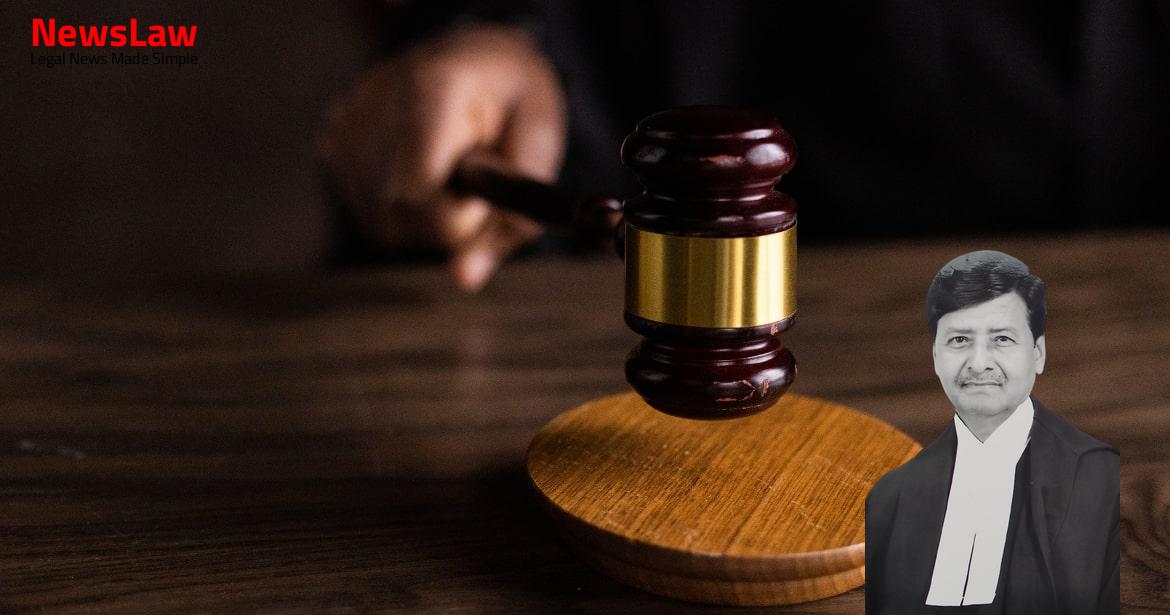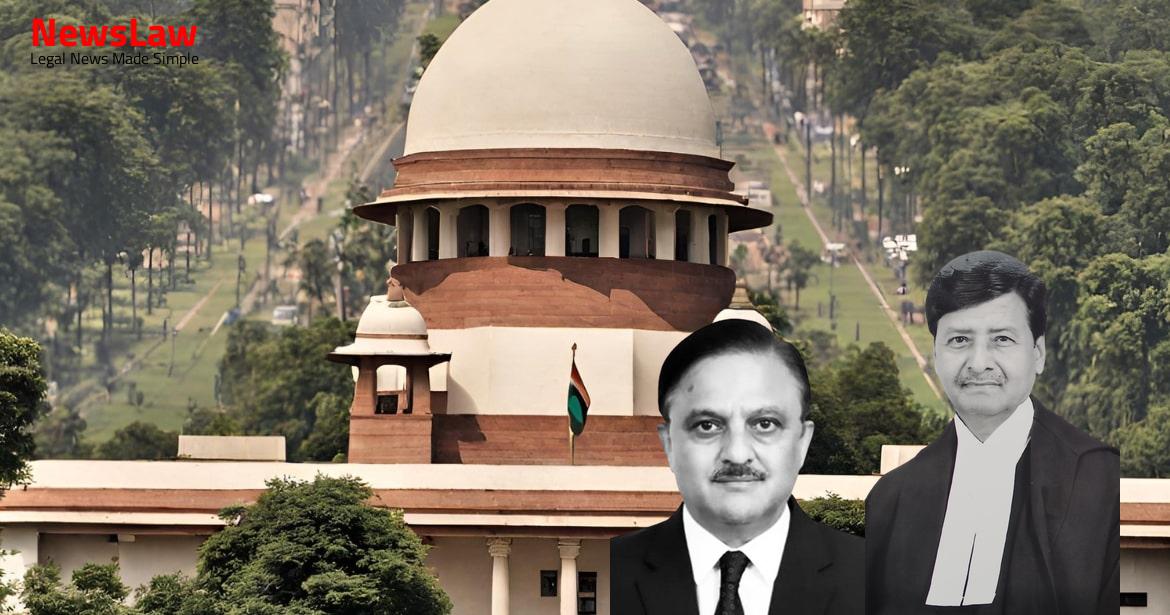Explore a recent legal case where the High Court dives into the intricate debate surrounding compassionate appointment rules. The focus shifts towards analyzing whether the policies should be applied based on the time of the employee’s demise or at the time of application submission. The court’s legal analysis sheds light on the interpretation of rules and their impact on pending applications. Stay tuned as we unravel the complexities of this crucial legal issue.
Facts
- The High Court of Orissa at Cuttack dismissed the writ petition filed by the appellant
- The appellant sought direction from State authorities for appointment on compassionate grounds
- The appellant has now appealed against the impugned judgment and order dated 26.10.2021
- The appellant applied for appointment as a Junior Clerk on compassionate ground in July 2010 under the 1990 Rules.
- The application was sent to the office of the Excise Commissioner, Orissa, Cuttack on 3.8.2011.
- The application was kept pending for five years without any action by the Excise Department.
- Reports were sought from the Tehsildar and CDMO to assess the financial condition and the mother’s medical condition.
- The mother of the appellant was found unfit for a government job by the Medical Board’s report.
- The 1990 Rules governing compassionate appointments were replaced by the 2020 Rules during the process.
- Under the 2020 Rules, one family member could be appointed to a ‘Group D’ base level post on compassionate grounds.
- The appellant’s case was directed to be considered under the 2020 Rules in April 2021.
- The Collector was instructed to take necessary action under the 2020 Rules regarding the appellant’s appointment.
Also Read: Ruling on Circumstantial Evidence in Murder Case
Arguments
- Learned counsel for the appellant relied on various decisions of the Supreme Court to support their argument.
- The High Court, however, relied on the decision in N.C. Santosh v. State of Karnataka and dismissed the writ petition, stating that the claim should be considered as per the amended Rules in force at the time of application, not at the time of the government servant’s death.
- The appellant, aggrieved by this decision, has filed the present appeal.
- The respondents’ counsel cited the N.C. Santosh case to argue in favor of considering the amended Rules at the time of application.
- There is a conflict of views on whether the policy applicable is that at the time of the employee’s death or at the time of application, as seen in various Supreme Court decisions.
- The respondents argued that even the amended rules of 2020 specifically state their applicability to pending applications, reinforcing their stance.
- In the case of The Secretary to Govt. Department of Education (Primary) and others v. Bheemesh alias Bheemappa, the Court also considered the relevance of the rules at the time of application.
- The appellant’s counsel referred to the recent decision in Bheemesh alias Bheemappa, which considered the case of N.C. Santosh.
- It is argued that the appellant’s claim for appointment on compassionate grounds should be evaluated under the amended 2020 Rules, not the earlier 1990 Rules.
Also Read: Challenging Legal Presumptions in Negotiable Instrument Cases
Analysis
- There was a conflict of view regarding the applicable rules for compassionate appointments – those at the time of death or at the time of application.
- The 1990 Rules were replaced by the 2020 Rules during the appellant’s case.
- The appellant faced delays and inaction from the department/authorities in his application for compassionate appointment.
- Several cases had to resort to High Court interventions due to delays in compassionate appointment processing.
- Tehsildar confirmed the family’s financial need met the criteria for compassionate appointment.
- The Additional Secretary requested updated financial reports and medical evaluations before finally directing the appointment.
- The delay and negligence from the authorities deprived the appellant of his entitled compassionate appointment under the 1990 Rules.
- The High Court’s judgment was quashed, and the authorities were instructed to consider the appellant for the Junior Clerk position as per the 1990 Rules within four weeks.
- The appellant will only receive benefits from the date of his appointment.
- Despite meeting all criteria, the appellant was unjustly denied compassionate appointment under the 1990 Rules.
- Timely consideration of applications for compassionate appointment is necessary to achieve the object and purpose of such appointments as per relevant policies or rules
- Delay in resolving applications leads to frustration of the policy of granting compassionate appointment on the death of the employee
- Cases of unresolved applications for nearly two decades have been observed
- Directions have been given to consider such applications at the earliest point of time
Also Read: Legal Analysis of Admission Irregularities in Educational Institutions
Decision
- Appeal allowed with no order as to costs.
- Applications for compassionate appointment should not be rejected on irrelevant considerations.
- Consideration for such applications must be fair, reasonable, and based on relevant factors.
- Authorities must decide on such applications within six months of submission.
Case Title: MALAYA NANDA SETHY Vs. STATE OF ORISSA (2022 INSC 617)
Case Number: C.A. No.-004103-004103 / 2022



